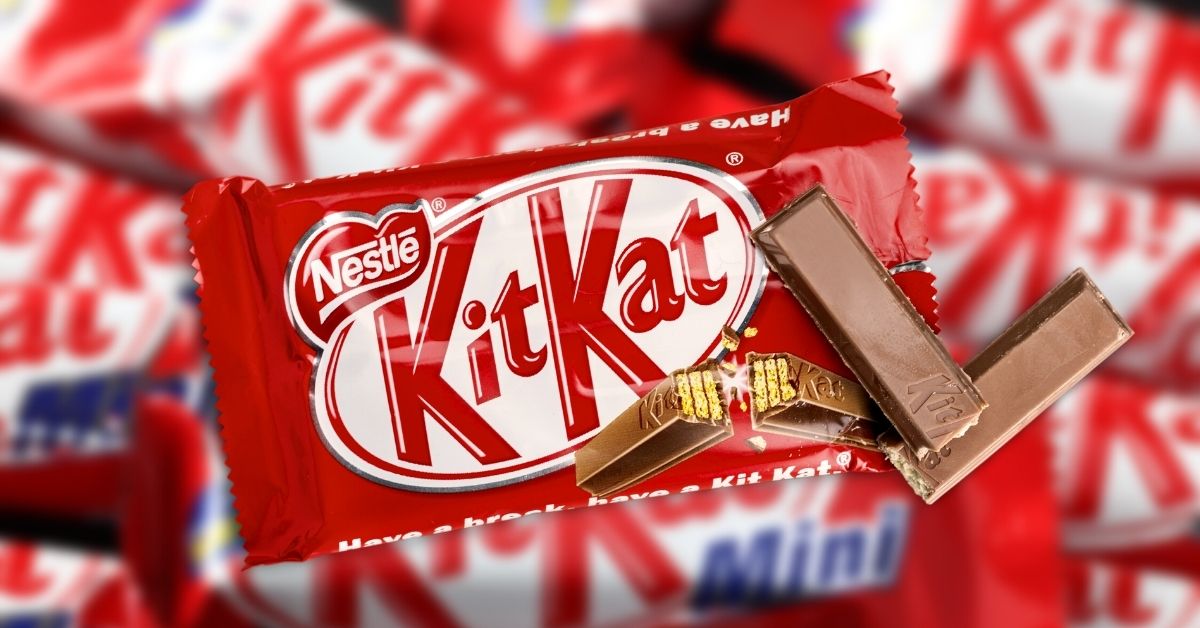Does Kit Kat Have Eggs? Can Vegans Eat It?


Kit Kats are a popular, iconic candy that has been around since the 80s. With its thick chocolaty exterior and crunchy wafer interior, Kit Kats have an incomparable texture and taste. You may have eaten these chocolate bars while growing up, and now you want to know if you can continue doing so after switching to a vegan or plant-based diet.
Kit Kat doesn’t have eggs. However, the most common and original Kit Kats contain milk chocolate and whey powder, making them non-vegan. Fortunately, the brand has unveiled a new vegan-friendly bar, the Kit Kat V. It’s made of rice milk and is a delicious alternative for those on a plant-based diet.
When you adopt a vegan lifestyle, you need to analyze what you eat to avoid any compromises. So, read along as I show you what’s in Kit Kats, if they’re suitable for vegans or vegetarians, and what are the alternatives.
Can Vegans Eat Kit Kat?
Vegans oppose the use of animal products, including dairy products such as yogurt, milk, whey products, and poultry products like eggs. Kit Kat has different animal products, including soy lecithin and full cream milk powder derived from cow milk. So, while it is amongst the richest chocolates when it to comes to taste, vegans shouldn’t eat the Kit Kat bar if they want to remain true to their plant-based diet.
Moreover, many vegans are against deforestation and the destruction of ecosystems that leave animals without homes. Hence, the fact that Kit Kat contains refined kernel palm oil makes the candy non-vegan.
Is Kit Kat Vegan-Certified?
The Kit Kat V is a vegan-certified candy. It’s made of cocoa butter, corn fiber, wheat flour, rice syrup, sunflower lecithin, vegetable-based fats, and natural vanilla flavorings. The brand has replaced non-vegan dairy milk with vegan-friendly rice-based milk.
Moreover, the cocoa is 100% sustainable and has been sourced through Nestle Cocoa Plan in collaboration with the Rainforest Alliance. The Kit Kat V offers the same taste as the predecessor, an ideal balance between the smooth chocolate and crispy wafer that people know and love.
Can Vegetarians Eat Kit Kat?
If you’re following a vegetarian diet, the Kit Kat is a vegetarian-friendly bar of chocolate. The chocolate may contain animal milk, but it’s typically free from other parts of the actual animal.
However, not all Kit Kats are vegetarian. Thus, it’s vital that you check the ingredient list before eating. That’s because the ingredients may vary from one country to another, and companies may change what they are using without much warning. Luckily, Nestle has a list of their vegetarian flavors, including chunky white, chunky peanut, finger dark chocolate, finger toffee treat, finger milk chocolate biscuit, and finger dark chocolate biscuit, among others.
The List of Ingredients in Kit Kat
Milk chocolate is just one of the several non-vegan ingredients present in Kit Kats. The original Kit Kat contains sugar, cocoa butter, cocoa mass, whole cream milk powder, wheat flour, cocoa, vegetable fat [emulsifier (soy lecithin)], refined palm kernel oil, raising agent (Sodium bicarbonate), yeast, flavors, and salt.
Keep in mind that the Kit Kat contains 24% Wafer fingers and 76% milk chocolate. The chocolate has a minimum of 22% cocoa solids and 25% milk solids.
So, Is Kit Kat Gluten-Free?
Kit Kat flavors aren’t gluten-free and thus aren’t suitable for people looking for a gluten-free diet or who are gluten-intolerant. That’s because Kit Kat bars contain wheat, which comprises gluten.
